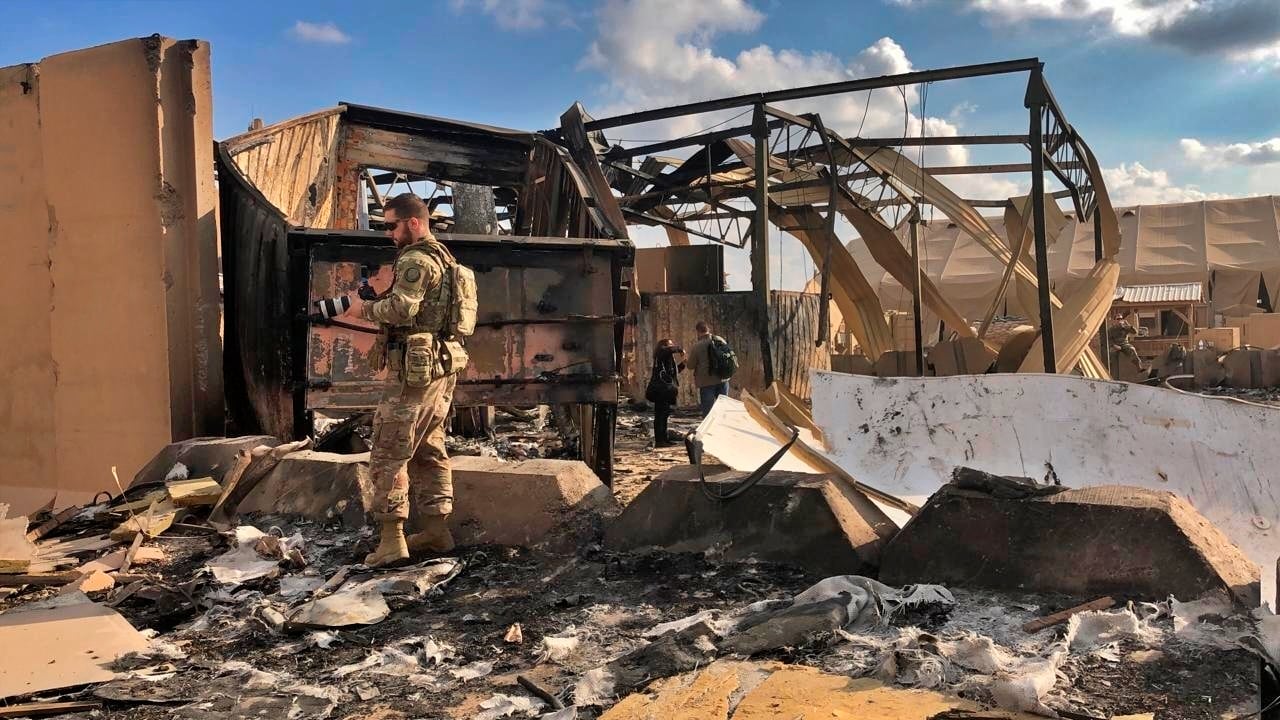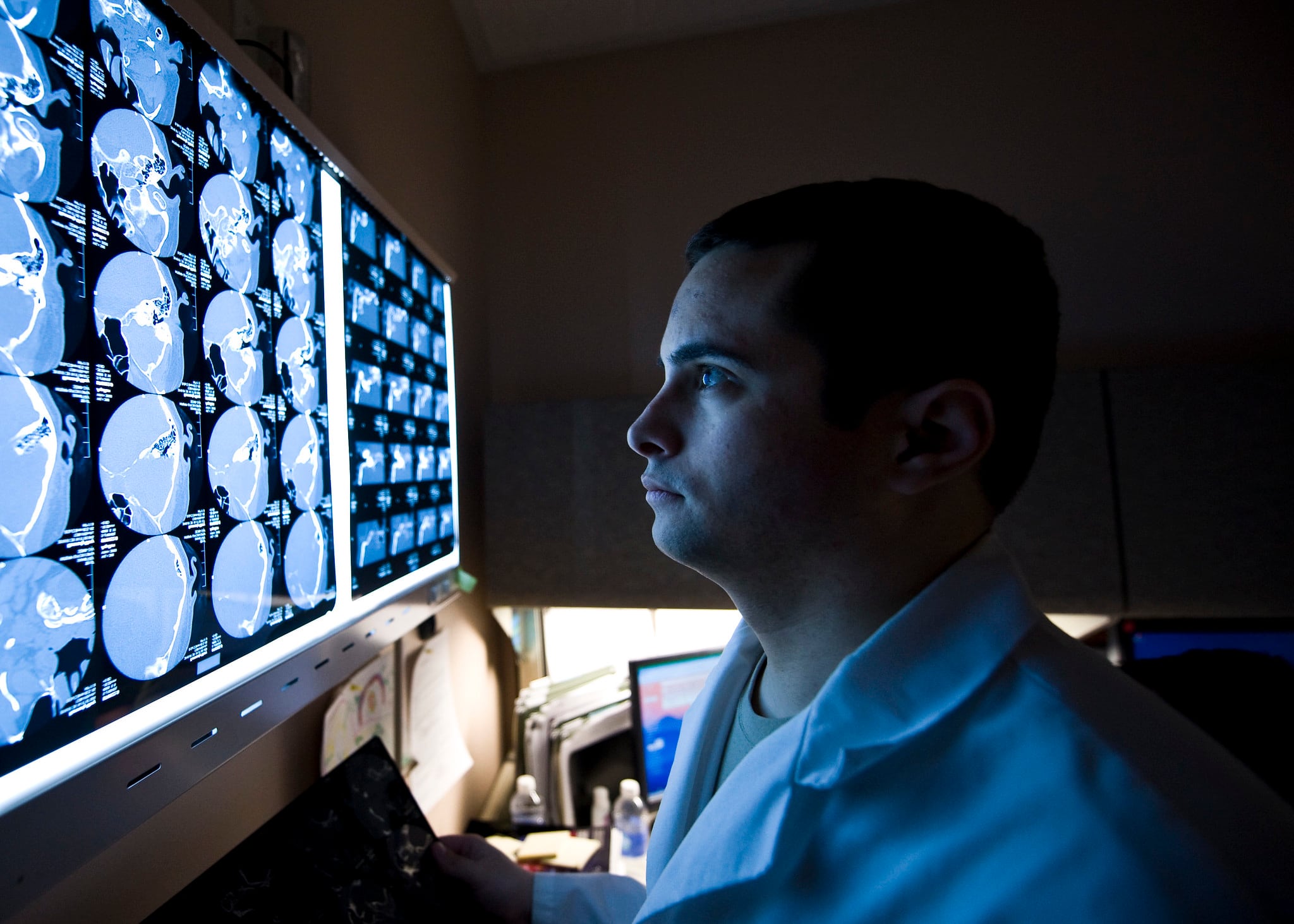The Army recently gained approval for a rapid blood test for traumatic brain injury that can be used on the battlefield.
For at least the past decade researchers have been seeking a way to quickly detect and diagnose TBI, according to an Army statement.
“A rapid test for TBI is a critical addition to our downrange capability to care for the brain health of our most important weapon system, the warfighter, and help maintain a high state of readiness across the Force,” said Army Brig. Gen. Michael J. Talley, commanding general for the U.S. Army Medical Research and Development Command and Fort Detrick, Maryland.
RELATED

The U.S. Food and Drug Administration cleared the test for use last week, according to the statement.
From 2000 to 2019, more than 400,000 troops sustained a TBI from combat injuries, training accidents and sporting events, according to the statement.
The test, known as the Abbott i-STAT Alinity TBI plasma assay, identifies two brain-specific protein markers that appear following a TBI incident.
That gives medics, nurses and doctors clear evidence of the condition rather than relying on subjective descriptions. It also reduces the need for head scans.
“A blood-based biomarker laboratory assay (blood test) for TBI will greatly enhance the ability of DoD medical personnel to objectively assess service members who have suffered a suspected TBI,” said Dr. Krista Caudle, product manager for USAMMDA’s Warfighter Brain Health Project Management Office.

By avoiding the need for unnecessary evacuations to conduct head scans, the blood test is likely to impact the efficiency of TBI management, Caudle said.
“Over the years, the program progressed through basic science studies at Walter Reed Army Institute of Research and USAMRDC’s Combat Casualty Care Research Program, then into product development and clinical trials in USAMMDA, and ultimately U.S. FDA clearance,” said Caudle.
Todd South has written about crime, courts, government and the military for multiple publications since 2004 and was named a 2014 Pulitzer finalist for a co-written project on witness intimidation. Todd is a Marine veteran of the Iraq War.





